RBA governor Michele Bullock says cash in ‘long-term decline’, gives it 10 years
RBA governor Michele Bullock says cash use is likely in “long-term decline”, acknowledging its withdrawal would hit “vulnerable” communities.
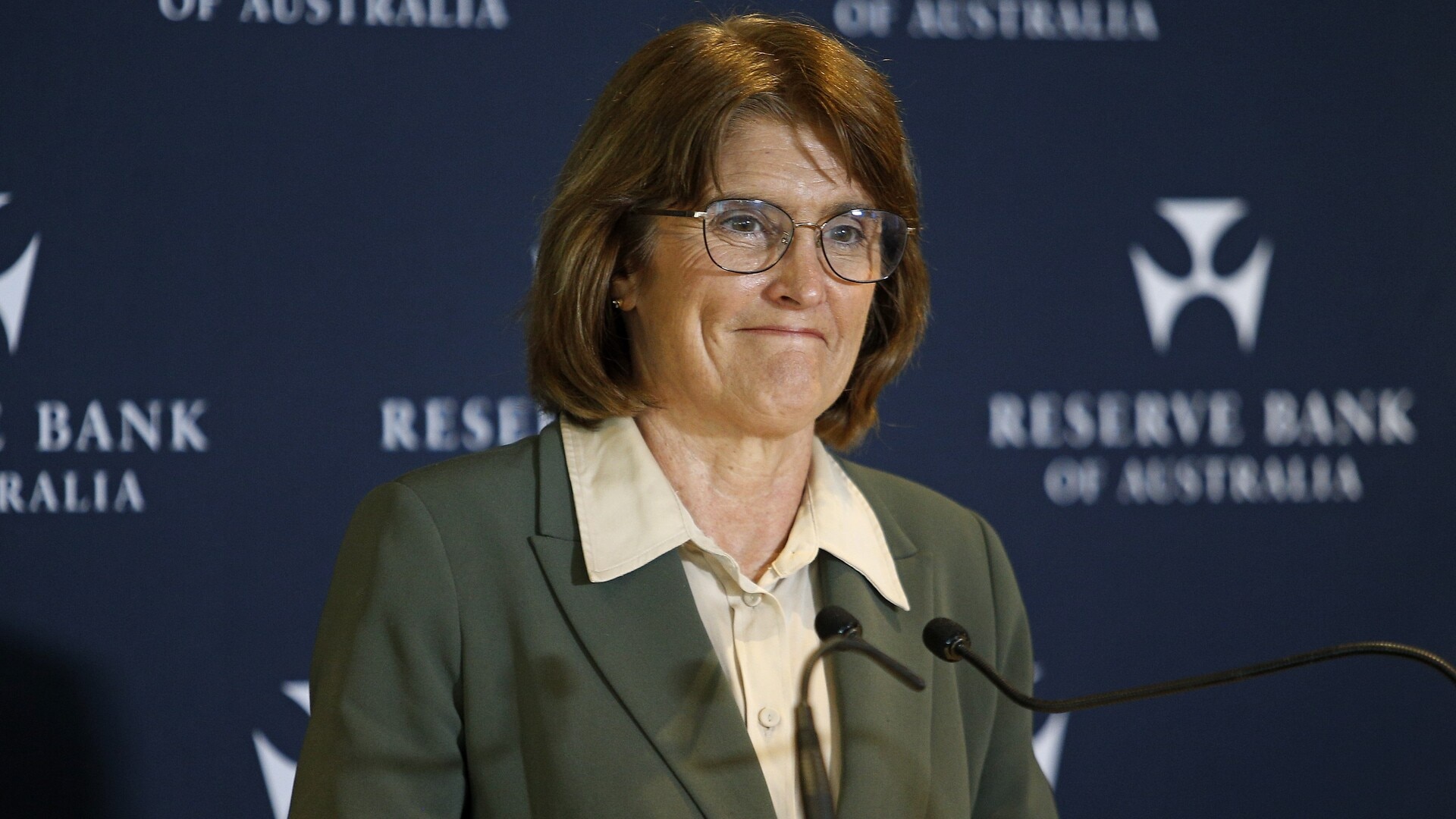
Breaking News
Don't miss out on the headlines from Breaking News. Followed categories will be added to My News.
Reserve Bank governor Michele Bullock says vulnerable people, including lower-income households and regional communities, will be most affected by diminishing cash usage that is in “long-term decline”.
Speaking at a parliamentary grilling in Canberra following this week’s first post-pandemic rate cut, she said cash was “going to be around probably for another 10 years”; however it, was becoming more expensive and difficult to distribute bank notes to communities that needed it.
However, she said the RBA was committed to ensuring cash remained a “viable means of payment for as long as Australians want or need to use cash” and acknowledged it was used “particularly during periods of economic uncertainty and can be a useful backup for electronic methods of payment”.
Responding to questions from LNP Groom MP Garth Hamilton, Ms Bullock said banks, regulators and the government needed to look beyond Band-Aid solutions to fix the cash issue.
“At the moment, we’re trying to solve the short-term issue, to make sure the cash is available … that people can use it, that people can access it,” she said.
“But we’ve got to think that cash is going to be around probably for another 10 years, and we’ve got to find a way of moving to a new system that means that distribution of cash can be undertaken and viable.”

She said the crux of the problem was that the cost of distributing cash was increasing as the amount of cash users was decreasing; however, she didn’t believe asking consumers to pay to use cash would “go down well”.
Commonwealth Bank was forced to pause its implementation of a $3 withdrawal fee for customers attempting to access cash from a branch in December. Bendigo Bank also copped criticised for implementing a similar $2.50 fee.
While banks would most likely have to absorb the costs of transporting and holding cash, Ms Bullock said the Reserve Bank was also reviewing the interest it paid to banks for providing cash in the community.
“We’re looking at whether or not we can expand that interest compensation to additional areas, which would encourage them further to hold cash out in the community so they can get it,” she said.
Her dire assessment of Australia’s cash future follows the banks throwing Linfox’s Armaguard a $50m lifeline to continue operating until June, with fears the business’s withdrawal will impact how cash is moved around the country.
Ms Bullock said that while banks were working “very hard” on a contingency plan, she was “never confident in this cash space”.
“If they don’t, then we’re in trouble, so I think necessity will mean that something will be done,” she said.
September data from the RBA revealed a $300m jump in the number of notes on issue from August to October despite the number of ATMs decreasing since 2008.
Figures from the central bank revealed the number and value of ATM withdrawals had fallen by about 60 per cent and 40 per cent respectively.
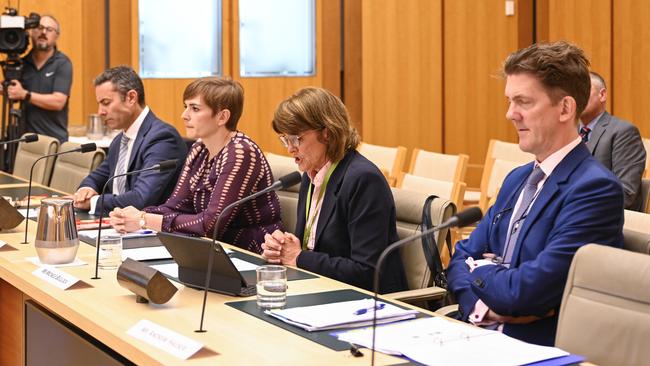
RBA boss’ brutal call on crypto in Australia
Reserve Bank governor Michele Bullock has given a withering assessment of bitcoin, stating it does and will not have a role in the payment system.
Caching her response as a “personal opinion,” adding that the RBA does not have an opinion or regulatory powers on bit coin and meme coins, she said the digital currencies do not “serve the purpose of money”.
“It doesn’t have a solid value. You can’t be guaranteed that what it’s worth today it will be worth the same thing tomorrow,” she said.
“It’s extremely slow relative to other payment systems (that) you can get transactions through in milliseconds and other payment systems.”
Asked by Labor Bennelong MP Jerome Laxale whether the RBA could move to regulate the currency given its increase in investment portfolios, especially for young people, Ms Bullock said it wasn’t a matter for the RBA.
“We don’t have powers in these areas. We don’t regulate consumer safety or investments or any of those sorts of things. It’s a matter for ASIC and I would also suggest Austrac,” she said.
Ms Bullock added the government could also move to regulate digital exchanges, or implement a licensing regime for stable coins.
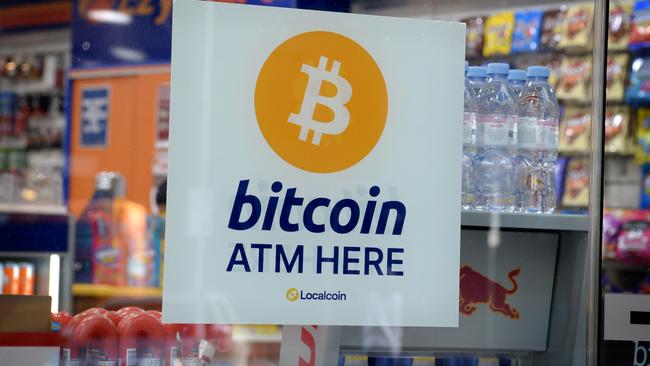
RBA ‘slow’ to inflation crisis
Ms Bullock also admitted the central bank was slow off the mark in combating rising inflation, acknowledging the bank “didn’t respond as quickly as we should”.
Her predecessor Philip Lowe began increasing the cash rate in May 2022, citing a rapid uptick in inflation driven by Covid-era supply chain shortages and Russia’s invasion of Ukraine.
Appearing in Canberra for a three-hour grilling by politicians following Tuesday’s rate cut, Ms Bullock acknowledged there was a lag.
“Arguably, we were late raising interest rates on the way up. We didn’t respond as quickly as we should have to rising inflation, and I think the board has been quite cognisant of the fact,” she said in response to a question posed by Wentworth MP Allegra Spender.
Headline inflation dropped to 2.4 per cent in the 2024 December quarter, moderating considerably from a high of 7.8 per cent in December 2022.
Underlying inflation, which removes volatile item hikes and drops, also decreased to 3.2 per cent, edging closer to the RBA’s target range of 2 to 3 per cent.
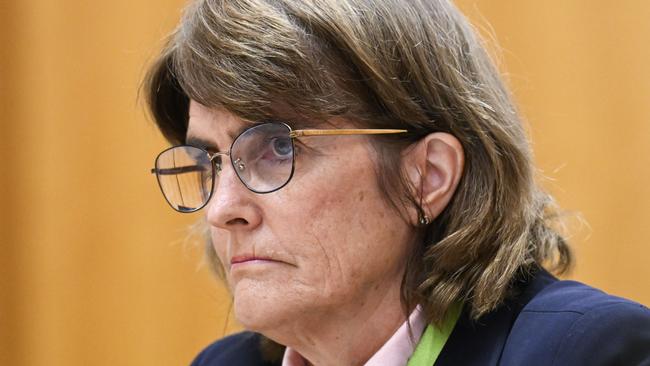
Her admission follows the RBA’s first post-pandemic rate cut on Tuesday, in which the board elected to cut the cash rate by 25 basis points to 4.1 per cent.
Ms Bullock said improved inflation figures, especially in housing costs and services, as well as a “softness in private demand” had propelled the bank to cut rates.
Although the bank could have waited for more data, she said the board was aware it “doesn’t want to be late,” as it was in increasing the cash rate to lower inflation.
Ms Bullock said international central banks had experienced similar conditions when they began easing monetary policy, and warned downward inflation trends would need to continue to allow for more rate cuts.
“We’re going to need to see continued progress in all those things in order to continue to get more confidence that we’re going to be sustainably back in the band,” she said.
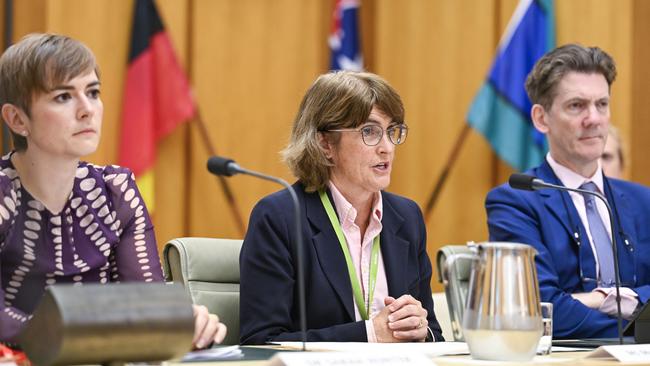
Group worst hit by inflation
The RBA boss also said she believed “lower income people who are renting” have been one of the groups most affected by decades-high inflation.
Ms Bullock said people in the cohort have felt the compounding affects of increased cost-of-living, and a housing crisis largely driven by low housing stock.
Unlike mortgage holders, renters will also not feel relief from the rate cuts, she added.
“They’ve seen a massive increase in rents, and they’ve also experienced massive inflation,” she said.
“So they’re not going to necessarily benefit from the decrease in interest rates. They are going to benefit as inflation starts to come down, and it is coming down, so that’s beneficial for them.”
RBA ‘cautious’ on future rate cuts
In her opening statement to the committee, Ms Bullock reiterated previous comments that the RBA will be “cautious” about future interest rate cuts, warning premature rate cuts could “delay or derail” Australia’s fight against inflation.
“We have not pre-committed to any particular course of action on interest rates, but in the forecast published this week, the central projections suggest that if monetary policy is eased too quickly or by too much, disinflation could stall, and inflation would settle above the midpoint of the target range,” she said.
Ms Bullock appeared in Canberra alongside deputy governor Andrew Hauser and assistant governors Sarah Hunter and Brad Jones.
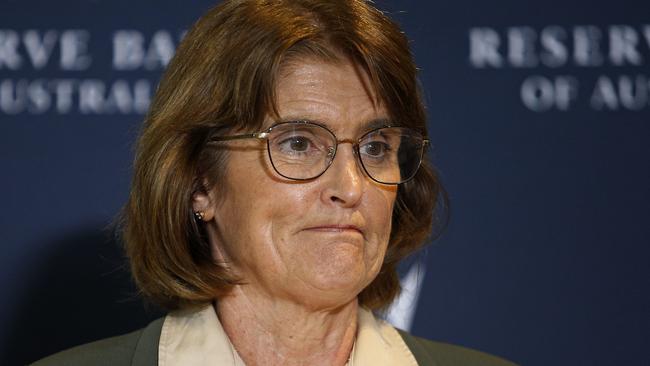
Rate relief won’t hit for 6 to 18 months
Referencing the words of her predecessor Phil Lowe, who said rate rises would take about six to 18 months to be felt by households, Ms Bullock agreed it would take a similar time for rate relief to come into effect.
“I don’t think there’s an asymmetry. In some sense, it’s true that it might … increase confidence of people (who) have been saving a bit more than we thought they might,” she said.
Ms Bullock added the “lags of monetary policy are really uncertain. It’s really hard to tell”.
She said rate cuts could help increase consumer confidence, however she said Tuesday’s 25 basis point rate cut was “at the margins”.
“But I know anything at the margin will be helpful for people,” she said.
Bullock warns against ‘too confident’ future cuts
Dashing the cash rate by 25 basis points to 4.10 per cent on Tuesday, Ms Bullock warned distressed mortgage holders against expecting successive relief, and said markets were “far too confident” about future rate cuts.
“What I would say is that the market is expecting quite a few more interest rate cuts, to the middle of next year,” she told reporters on Tuesday.
“Whether or not that eventuates is going to depend on the data.”
While she said inflation had dropped “substantially” from its 2022 peak,” she cautioned “upside risks” remained.
The RBA could hand down its second rate cut on April 1, with markets expecting two further rate cuts of about 25 basis points in 2025, followed by another in early 2026.
April’s meeting will also occur before the federal election due by May 17, with the next rate decision due on May 20.
Handing down the RBA’s decision on Tuesday, Ms Bullock urged Australians to “be patient”.
“I understand you are hurting, and I understand mortgage rates have increased a lot … but we need to get inflation down because that is the other thing that is really hurting you,” she said.
“If we don’t get inflation down, interest rates won’t come down, and you’ll be stuck with inflation and high interest rates.
“So, we have to be patient. I understand it hurts. But it’s really important that we get inflation down.”
Originally published as RBA governor Michele Bullock says cash in ‘long-term decline’, gives it 10 years



